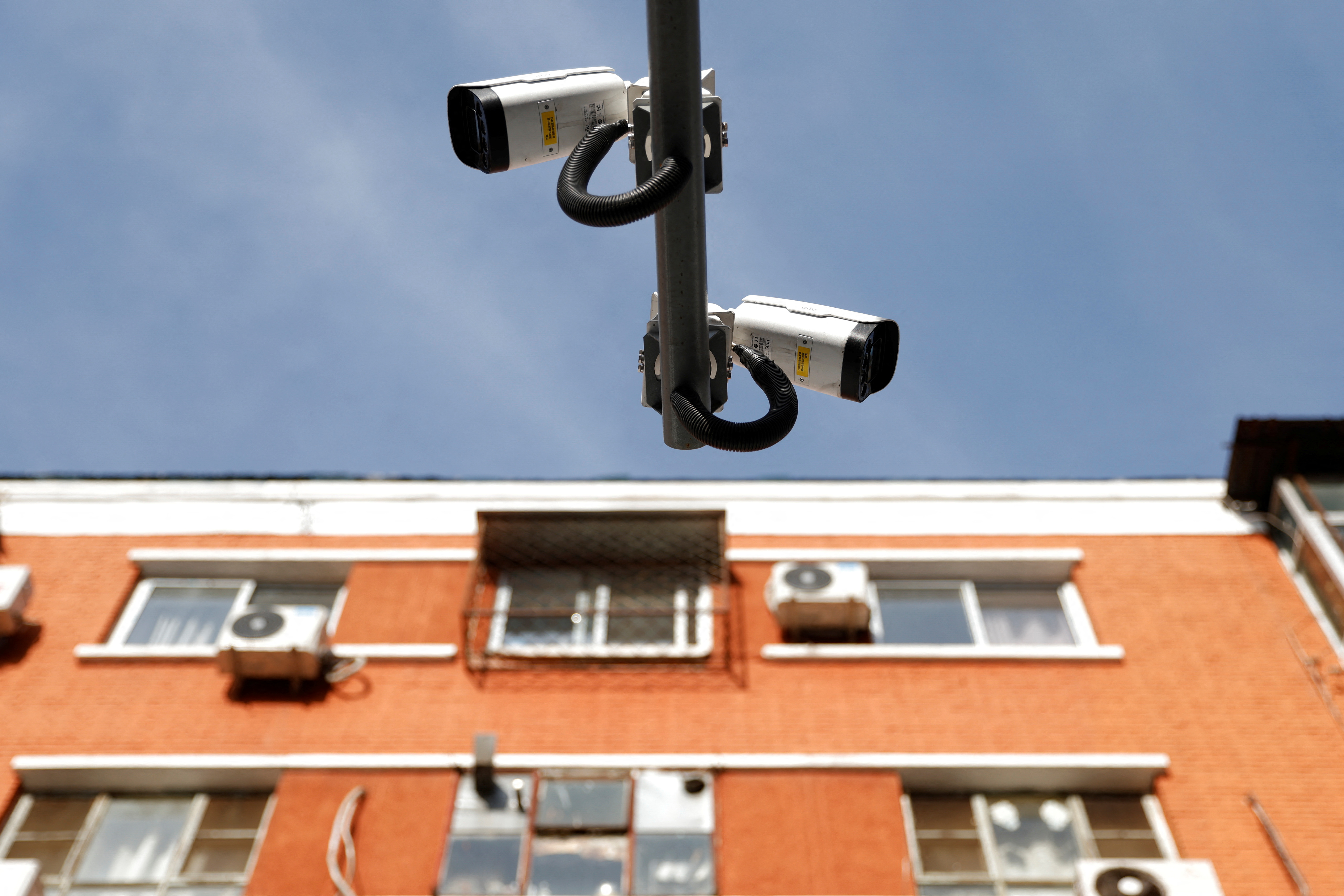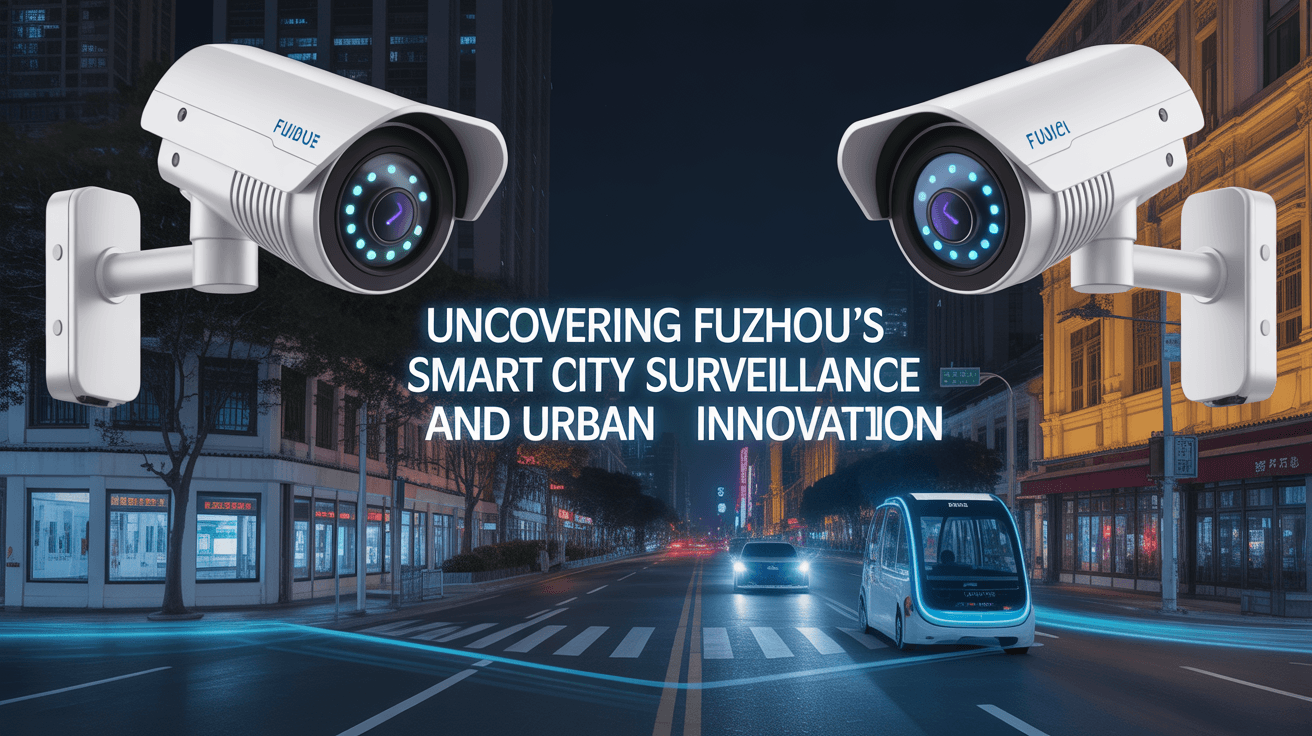Uncovering Fuzhou’s Smart City Surveillance and Urban Innovation

Welcome to the fascinating world of Fuzhou, a vibrant city in southeastern China that’s rapidly becoming a beacon of urban innovation. As travelers and tech enthusiasts explore China’s dynamic landscape, Fuzhou smart surveillance systems offer a glimpse into how cutting-edge technology is shaping everyday life. Here at jusha.travel, we love sharing insights like these to make your China journey unforgettable, blending the excitement of modern advancements with rich cultural experiences. Whether you’re drawn to surveillance technology China or planning a trip via a *Fuzhou travel guide*, this post will dive into how Fuzhou’s smart city initiatives are redefining urban living. We’ll weave in keywords like *Fuzhou smart city tech*, China travel tech 2025, and *China urban tech* to highlight their relevance, providing practical tips for visitors curious about this tech-forward destination.
Fuzhou isn’t just about ancient temples and delicious street food; it’s also at the forefront of China urban tech, using AI and surveillance to build safer, more efficient communities. Imagine strolling through bustling markets while knowing that advanced systems are working behind the scenes to prevent disasters and enhance daily life. In this post, we’ll explore how these innovations align with broader trends in *China travel tech 2025*, offering travelers a unique lens on China’s evolution.
Fuzhou’s Smart City Vision: A Blend of Tradition and Tech

Fuzhou stands as a regional hub for digital innovation, where ancient history meets futuristic Fuzhou smart city tech. This coastal city in Fujian Province has embraced a comprehensive smart city agenda, focusing on improving urban safety, flood control, and overall quality of life through data-driven solutions. For travelers, this means experiencing a city that’s not only rich in culture but also equipped with tools that make exploration safer and more enjoyable.
One of the standout aspects of Fuzhou’s vision is its AI-based flood control system, known as the Water Intelligent System (WIS) [PDF: Smart Flood Control Under Water Intelligent System In Fuzhou](https://droughtclp.unccd.int/node/1956/printable/pdf). This system monitors over 1,000 reservoirs, rivers, and parks, using real-time data to predict and mitigate flooding—a crucial feature in a region prone to heavy rains. As a traveler, you might not notice the tech at first glance, but it ensures that popular spots like the scenic Gushan Mountain remain accessible and safe.
If you’re planning a trip, consider incorporating Fuzhou smart surveillance into your itinerary. For instance, when visiting the city’s ecological parks, you can appreciate how surveillance technology China enhances environmental protection. A practical tip: Download a local app that integrates with these systems to get real-time alerts on weather and traffic, making your *Fuzhou travel guide* even more useful. This aligns perfectly with *China travel tech 2025* trends, where smart cities prioritize sustainability and visitor convenience.
Culturally, Fuzhou’s innovations reflect China’s harmonious blend of tradition and progress. Think about enjoying a bowl of local oyster noodles while discussing how *China urban tech* is preserving heritage sites from natural disasters. It’s a reminder that technology isn’t just about gadgets—it’s about creating a better future for residents and visitors alike.
Smart Surveillance Infrastructure: Enhancing Safety and Efficiency

Delving deeper, *Fuzhou smart surveillance* forms the backbone of the city’s infrastructure, integrating advanced tools for public security and urban management. This isn’t just about cameras; it’s a sophisticated network that includes AI-enhanced systems for traffic control, emergency response, and even air defense, as seen in upgrades to areas like the Gushan Scenic Area [PDF: China’s Air Defense Radar Industrial Base](https://www.airuniversity.af.edu/Portals/10/CASI/documents/Research/Infrastructure/2025-03-10%20Air%20Defense%20Radars.pdf?ver=n23Kh46_R–EG2y9MEQAPg%3D%3D).
In Fuzhou, surveillance technology China plays a dual role: protecting citizens from environmental threats while supporting everyday activities. For example, the WIS system uses cameras and sensors to provide a city-wide view, analyzing data to prevent floods and ensure smooth operations in busy districts. Travelers can benefit from this by exploring Fuzhou with greater peace of mind—perhaps visiting the bustling Sanfang Qixiang historic district, where smart tech helps manage crowds and maintain safety.
An interesting fact: Fuzhou’s approach mirrors nationwide trends in *China urban tech*, where “city brain” platforms process vast amounts of video data in real time. This could mean instant alerts for lost items or traffic jams, making your visit more seamless. If you’re a culture enthusiast, pair this with a food tour; try Fuzhou’s famous fish balls while learning how *Fuzhou smart city tech* contributes to sustainable fishing practices through monitoring water quality.
For practical tips, when traveling in China travel tech 2025 hotspots like Fuzhou, always respect privacy norms. Engage with locals about how these systems improve daily life, fostering a deeper cultural connection. This tech isn’t intrusive; it’s designed to enhance experiences, like ensuring your evening walk along the Min River is safe and enjoyable.
Data Integration and AI-Driven Urban Platforms: Real-World Applications

At the heart of Fuzhou’s innovations is the seamless integration of data and AI, turning *Fuzhou smart city tech* into a powerful tool for urban problem-solving. The Water Intelligent System exemplifies this, fusing real-time sensor data with predictive models to manage everything from river levels to park maintenance [GWP China Helps Fuzhou Review Water AI System](https://www.gwp.org/en/GWP-China/about-gwp-china/news-list/2022/gwp-china-helps-fuzhou-review-water-ai-system/). For travelers, this means accessing smarter travel options, like AI-optimized routes that avoid flooded areas during the rainy season.
*China urban tech* in Fuzhou emphasizes multi-sector coordination, linking environmental agencies with public services for a holistic approach. Imagine using an app that not only recommends the best spots for tasting Fuzhou’s renowned rice wine but also alerts you to air quality updates—directly tying into *surveillance technology China*’s broader goals. This level of integration is a key feature of *China travel tech 2025*, where technology enhances cultural immersion.
A unique insight: Fuzhou’s systems draw from research on factors influencing smart city compatibility [Compatibility as a Prerequisite: Research on the Factors Insecting…](https://journals.sagepub.com/doi/full/10.1177/21582440231217909), ensuring that AI tools work alongside human expertise. For visitors, this translates to practical advice, such as joining a guided tour of the city’s smart water facilities to learn about its environmental benefits. Don’t miss trying local specialties like taro cakes afterward, connecting tech advancements with Fuzhou’s culinary heritage.
However, it’s important to discuss the human side. Discussions on Fuzhou smart surveillance often touch on privacy, as highlighted in analyses of Chinese smart cities [Identifying potential emerging human rights implications in Chinese…](https://policyreview.info/articles/analysis/identifying-potential-human-rights-implications-in-chinese-smart-cities). Travelers should approach with cultural sensitivity, appreciating the balance between innovation and community well-being.
The Bigger Picture: Implications and Future Trends

Wrapping up our exploration, Fuzhou’s smart city initiatives showcase how Fuzhou smart surveillance and related technologies are not just futuristic concepts but tangible enhancements to daily life. From flood prevention to safer public spaces, these advancements embody *China urban tech*’s potential to inspire sustainable travel. We’ve seen how surveillance technology China integrates with cultural elements, making Fuzhou a must-visit for those interested in *China travel tech 2025*.
In summary, Fuzhou offers a perfect mix of innovation and tradition, providing travelers with practical tools while preserving its rich heritage. Here at jusha.travel, we’re passionate about guiding you through these experiences, so whether you’re planning a tech-focused trip or seeking cultural insights, remember that cities like Fuzhou are reshaping what it means to visit China.
We’d love to hear your thoughts—have you experienced smart city tech in China? Share in the comments below, visit jusha.travel for more inspiring guides, or explore related articles like our Fuzhou travel tips to plan your next adventure! Let’s keep the conversation going and make every journey unforgettable.

